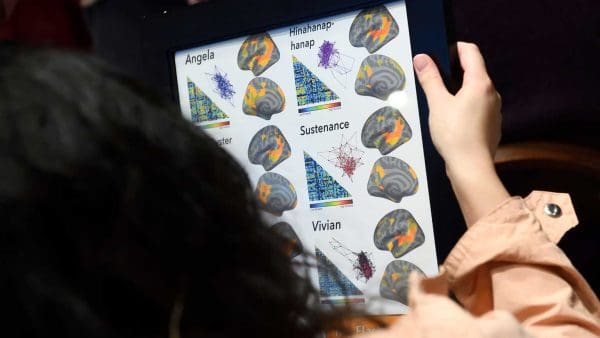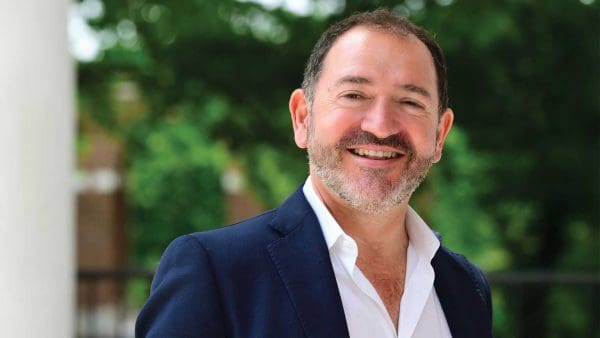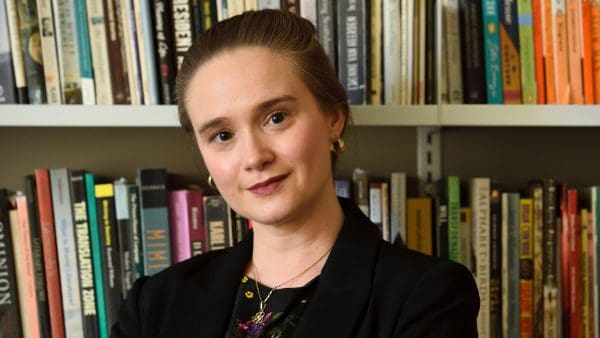J. Michael Boardman

Boardman was professor emeritus in the Department of Mathematics and an internationally recognized expert in the field of homotopy theory, died of natural causes on March 18, 2021. He was 83.
Boardman, who specialized in algebraic and differential topology, was renowned for his construction of the first rigorously correct model of the homotopy category of spectra.
Born in Manchester, England, Boardman served in the Royal Air Force in 1956 before earning a bachelor’s degree and PhD from Trinity College, Cambridge, of the University of Cambridge, in 1961 and 1965, respectively. He served as visiting lecturer at the University of Chicago in 1966 and as assistant lecturer at the University of Warwick (U.K.) in 1967, and came to Johns Hopkins as associate professor in 1969, where he became professor in 1972. He was named professor emeritus in 2010.
Boardman was a Fellow of the Science Research Council and a Fellow of the American Mathematical Society.
Melvin Kohn

Kohn was an internationally recognized professor emeritus of sociology and Academy Professor, died at home on March 19, 2021. He was 92.
A pioneer in establishing the field of the study of social structure and personality, Kohn spent 27 years in the Department of Sociology before retiring as emeritus in 2012. His research combined class analysis and social psychology, with a particular focus on job conditions and their implications for personality development.
Born in New York City, Kohn earned his BA in psychology and general studies from Cornell University in 1948, and his PhD in sociology, with minors in social psychology and industrial relations, also from Cornell, in 1952. He conducted groundbreaking research on the relationship between social class and schizophrenia in the Laboratory of Socio-environmental Studies at the National Institute of Mental Health from 1952 to 1985.
Kohn arrived at Johns Hopkins in 1985 as professor of sociology. He chaired the department from 1996 to 1999, and served as William D. and Robin Mayer Distinguished Professor, School of Arts and Sciences, from 2009 until he was named emeritus in 2012.
A past president of the American Sociological Association, the Eastern Sociological Society, and the Sociological Research Association, Kohn was elected a fellow of the American Academy of Arts and Sciences; the American Association for the Advancement of Science; and the Guggenheim Foundation. He was awarded the Cooley-Mead Award, Section on Social Psychology, American Sociological Association; the Merit Award, Eastern Sociological Society; and The Stuart A. Rice Merit Award for Career Achievement, District of Columbia Sociological Society.
J. Hillis Miller

Miller was among the most distinguished literary critics and theorists and a 19-year professor in the Krieger School’s Department of English, died February 7, 2021, at his home in Sedgwick, Maine. He was 92.
Part of the Yale School of the literary deconstruction movement, Miller helped revolutionize the study of literature. In dozens of books, he shaped ideas about rhetoric and fiction, literature and ethics, and the ways that texts can and cannot say what they mean.
Miller’s career began at Johns Hopkins in 1953. Named full professor in 1963, he served as department chair from 1964 to 1968. In 1972, he moved to Yale.
Born in Newport News, Virginia, Miller earned a BA at Oberlin College in 1948 in English. He earned a MA and PhD at Harvard in 1949 and 1952, respectively. Miller served as a senior member of the editorial board of Hopkins’ quarterly literary journal ELH from 1955 through 2021. He served as president of the Modern Language Association and received a lifetime achievement award from the MLA.
Paul R. Olson

Olson, professor emeritus in the Department of Modern Languages and Literatures, died in December 2020. He was 95.
Renowned for his scholarship and teaching of Spanish literature, Olson researched and wrote about medieval Spanish and Italian literature, linguistics, 20th-century Spanish poetry, and the works of Miguel de Unamuno. He arrived at Hopkins in 1961 as assistant professor of modern Spanish literature, and became associate professor in 1963 and professor in 1967, serving for a time as chair of the Department of German and Romance Languages and Literatures, as it was then known. He was named emeritus in 1991.
A native of Rockford, Illinois, Olson earned a BA and AM from the University of Illinois in 1948 and 1950, respectively, and a PhD from Harvard in 1959. Before coming to Hopkins, he served as instructor (1956–1959) and assistant professor (1959–1961) at Dartmouth College.
Olson was a Guggenheim Fellow, Fulbright grantee, and American Council of Learned Societies grantee, and was a member of the Modern Language Association, Association International Hispanistas, and National Association of Scholars.
Peter Privalov

Privalov was a research professor in the Department of Biology and a founding father of the field of biological microcalorimetry, died of lymphoma on December 20, 2020. He was 88.
Throughout his career, Privalov focused on the physical principles of the architecture of biological macromolecules: proteins, nucleic acids, and their complexes. Specifically, he studied the energetics of formation of their three-dimensional structures: the forces stabilizing their structure, the mechanism of cooperation of these forces, and their interaction with the surrounding media of water or lipids.
Born in Georgia, Russia, Privalov came to Johns Hopkins in 1991 as professor of biology and biophysics, becoming research professor in 2011. Before that, he served as head of the Laboratory of Thermodynamics (1966–1991) and professor (1984–1991) at the Institute of Protein Research in Moscow.
Privalov earned a master’s degree and PhD in physics at Tbilisi University in Georgia, Russia, in 1956 and 1964, respectively, and a DSc in biophysics at the Institute of Biophysics in Moscow in 1971. Awards include the AICAT-SETERAM Award for Outstanding Contribution to the Thermodynamics of Biomacromolecules, the Julian Sturtevant Award for Services to Experimental Thermodynamics, the Christensen Memorial Award and the Huffman Memorial Award of the Calorimetry Conference, and the Alexander von Humboldt Research Award.
Nilabh Shastri

Groundbreaking immunologist Nilabh Shastri, a Bloomberg Distinguished Professor in the Department of Pathology in the Johns Hopkins School of Medicine and the Department of Biology in the Krieger School, died January 22, 2020, after a long illness. He was 68.
Shastri devoted decades of research to understanding how the human immune system recognizes rapidly changing foreign elements—such as viruses, microbes, tissues, or other diseases—in order to elicit an effective immune response.
Shastri was born and raised in the Himalayan valley of Dehradun, India. He received his bachelor’s and master’s degrees in chemistry from Panjab University in Chandigarh in 1972 and 1973, respectively, and his PhD in biochemistry from the All India Institute of Medicine Sciences in New Delhi in 1980.
Before he joined Hopkins in 2018, Shastri spent more than 30 years as a faculty member at the University of California, Berkeley, where he headed the Division of Immunology and Pathogenesis. He has also held visiting professorships at Yale University and the University of Oxford.
Mack Walker

Walker, professor emeritus in the Department of History, died February 10, 2021, of COVID-19. He was 91.
An esteemed historian of German intellectual history, Walker spent 25 years at Johns Hopkins. His four books spanned topics ranging from small-town life in 1930s Germany to rationalist foundations for public law in the Holy Roman Empire.
Born near Springfield, Massachusetts, Walker earned a BA from Bowdoin College in 1950 and a PhD from Harvard in 1959.
Walker served as instructor at the Rhode Island School of Design from 1957 to 1959; instructor and assistant professor at Harvard from 1959 to 1966; and associate professor and professor at Cornell from 1966 to 1974, when he arrived at Hopkins. He served as department chair from 1979 to 1982, and was named emeritus in 1999.
Walker was a Guggenheim Fellow and a Fellow in the American Academy of Arts and Sciences, and was awarded a fellowship from the National Endowment of the Humanities.




